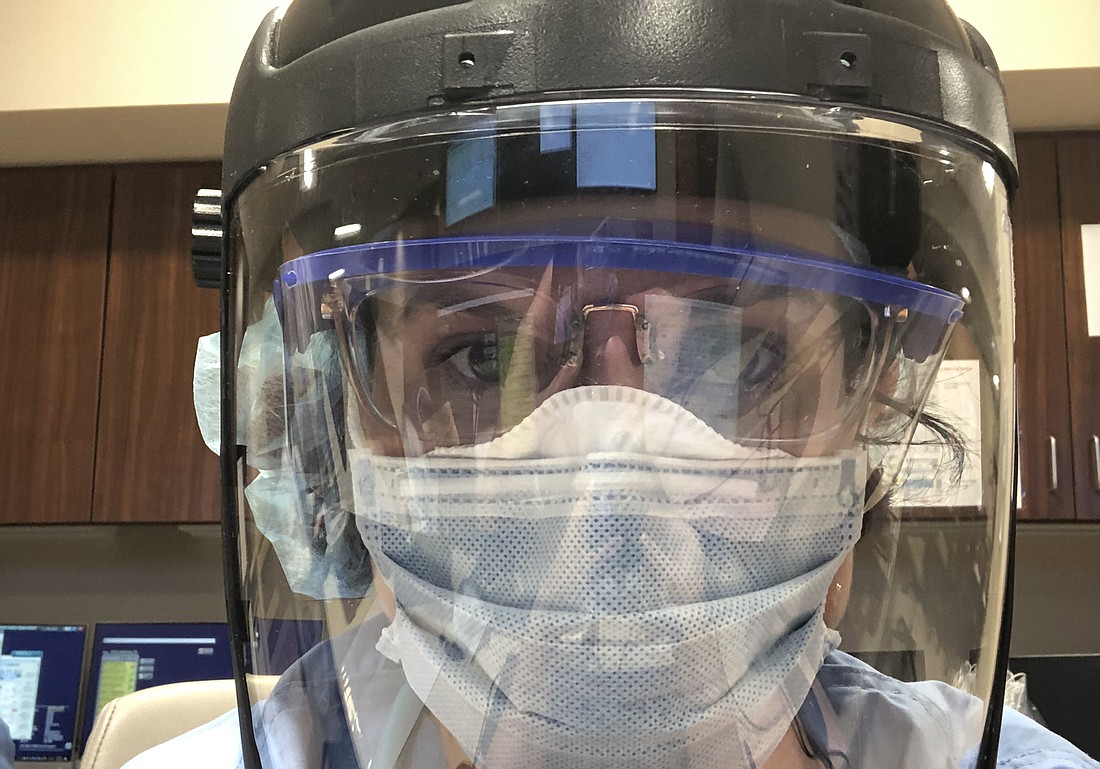- November 23, 2024
-
-
Loading

Loading

These days, heroes are known more for scrubs and surgical masks than capes.
Doctors, nurses, technicians and countless other health care workers worldwide have been battling COVID-19 on the front lines for weeks. In Florida, officials estimate the virus’ peak will occur around mid- to late April.
In the meantime, tens of thousands of health care professionals are working overtime, separated from their families and often scrambling for personal protective equipment — all of them putting their own health at risk to help save lives.
Dr. Charlotte Charfen, former Oakland resident and owner of the Oakland Manor House, is among those heroes. As an emergency physician for 20 years, she often is among the first to see patients when they enter an emergency department.
Charfen always had been driven to go into medicine, even before she had any real experience with the medical field. It wasn’t until well into her medical school education that she made a promise to herself to spend a month training in the emergency department. It was love at first sight.
INTO THE FIRE
Today, Charfen lives and works in Hawaii and does a good amount of travel work. A few weeks ago, though, she found herself temporarily back in Oakland after the coronavirus pandemic interrupted her spring break plans.
Charfen and her teenage daughter were supposed to fly to New York City to see a concert before returning to Florida. Then, her daughter was supposed to visit her father while Charfen completed travel work in another part of the state.
Instead, the two ended up in Florida for a prolonged “spring break.” After completing the shifts she had committed to working in another hospital, Charfen was asked to stay in state into May to help with the growing needs many hospitals are seeing.
“There’s always need,” she said. “There’s always need in this area … and there’s definitely a need because of COVID-19.”
One of the biggest challenges health care workers are facing right now, she said, is lack of personal protective equipment. After all, she added, PPE is their armor.
“That has been the hardest thing for me to wrap my head around, is how … all of a sudden, we have some crazy shortage (of PPE), and we think it’s OK to send people on the front lines into something that could kill them without the appropriate gear,” she said. “That blows my mind, and mentally has been the hardest thing. It really is a mind game, because we are so used to rushing in when other people are running the other way. We cannot just run in now because not only are we endangering ourselves, we’re endangering all of our workers.
“It’s not the practice of medicine — it’s the anxiety around your safety where you feel like you’re not being cared for,” she said. “It’s a terrible feeling.”
Upon completing that assignment, she returned to her home in Oakland and self-quarantined for two weeks to ensure she wasn’t sick. Then, she geared up to help out at her next assignment in Central Florida. Luckily, she said, this organization has been great at providing all necessary PPE.
MANY UNKNOWNS
Charfen said although she has admitted a few patients to the hospital, she has not personally had any critically ill COVID-19 patients that she’s had to intubate yet. Many patients she’s seen are afraid more than anything.
“The energy around all this has got everybody so afraid,” she said. “A lot of my job is to try to alleviate some of that fear. I can’t take it all away, because there’s always going to be a, ‘What if?’ But the majority of patients I’m seeing right now are not so sick.”
However, she knows severe and critical cases are out there. In fact, she said, one of the biggest misconceptions surrounding COVID-19 is treatment and therapeutic options. Hydroxychloroquine and chloroquine are among those oral prescription drugs that have been touted as potential treatments.
Both have been used to treat malaria and certain inflammatory conditions. They are under investigation in clinical trials for treatment of COVID-19 patients, according to the Centers for Disease Control. The CDC also says there currently are no drugs or other therapeutics approved by the U.S. Food and Drug Administration to prevent or treat COVID-19.
“There is a misconception that hydroxychloroquine is going to cure their COVID-19,” Charfen said. “I cannot tell you how many requests I got for hydroxychloroquine, and those people don’t even have COVID-19. There’s a lot of case reports that it’s helpful, and a lot of case reports that it’s not. It’s not hard data. I think a lot of people are putting way more stock into it than what the studies are showing thus far.
“It just feels like we’re so focused on trying to find that magic pill or that magic something, where really and truly it’s all about just basic fundamentals (like hand washing),” she said. “If we can do those, we’ll be fine. Yes, people are dying, and yes, that is tragic, but I think overall if we can do the basic things, most of us will be OK.”
SILVER LININGS
Despite all the bad news surrounding the coronavirus pandemic, Charfen said there have been countless positive and uplifting moments she’s experienced over the last several weeks. Family, friends and community members have dropped off groceries and supplies for her, donated coffee and PPE, and are ready to help however they can.
“Even though I am isolated and kind of alone in this house by myself, I don’t feel alone at all,” she said. “On a personal level, I feel extremely supported by the community, and I feel a lot of gratitude. … I always tell people the biggest help is for people to stay at home, do those things you’ve been asked, and that is the greatest gift to a health care worker right now.”